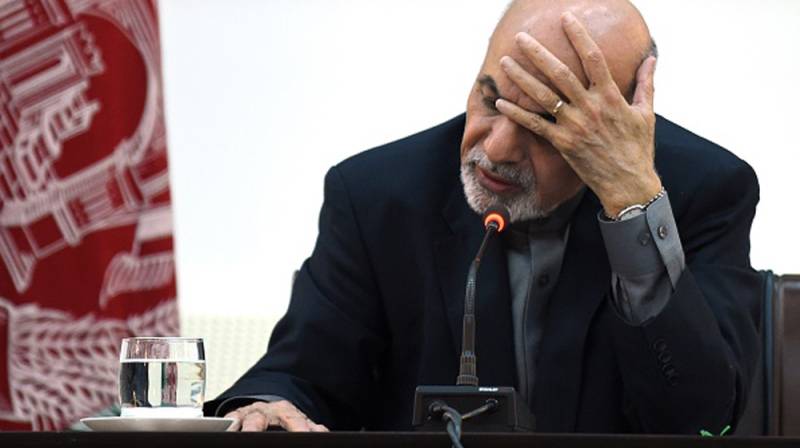Is Afghanistan Government on verge of collapse?
Shares

KABUL (APP) - Afghanistan's chief executive has castigated his ally Ashraf Ghani as "unfit for the presidency", in a public outburst highlighting bitter internal divisions that threaten their US-brokered power sharing agreement.
Abdullah Abdullah's comments come ahead of a September deadline for the government to honour the fragile agreement signed after the fraud-tainted presidential election in 2014, which both leaders claimed to have won.
By then the government is expected to enact sweeping election reforms and amend the constitution to create the position of prime minister for Abdullah. Observers say that deadline is unlikely to be met, effectively tipping Afghanistan into a political crisis.
"Electoral reforms were one of the promises made when the National Unity Government was formed. Why weren't these reforms brought?" Abdullah told a small gathering in Kabul on Thursday.
"Mr President, over a period of three months you do not have time to see your chief executive face-to-face for even an hour or two? What do you spend your time on?
"There are arguments in every government but if someone does not have patience for discussion, then he is unfit for the presidency."
The acrimony comes as Taliban insurgents are threatening to overrun Lashkar Gah, capital of the strategic poppy-growing southern province of Helmand.
Abdullah, a former anti-Soviet fighter, also accused Ghani of monopolising power and not consulting him over key government appointments.
The presidential palace offered a measured response on Friday, saying Abdullah's remarks "were not in accordance with the spirit of governance", while at the same time extending him an olive branch.
"The National Unity Government will work collectively, and very soon serious and effective discussions will take place (regarding Abdullah's comments)," the palace said, without offering details.
Abdullah said he would meet Ghani on Saturday to try to iron out some of their differences.
Their power-sharing deal, brokered by US Secretary of State John Kerry, was hailed after the troubled 2014 election as a breakthrough as it averted potential military and political confrontations.
But it was only meant to be a stopgap arrangement before a more permanent solution was fleshed out by a loya jirga (grand assembly of elders) and a constitutional amendment to formalise Abdullah's position as prime minister.
Divisions between the two leaders are an open secret in Kabul but Abdullah's public outburst is a prelude to what analysts are calling "political fireworks" if their agreement is not honoured.
Aside from election reforms, under the deal the government is also expected to hold parliamentary elections by the end of September.
Political opposition groups, including former president Hamid Karzai, are mounting pressure to hold the loya jirga to decide the government's constitutional legitimacy.
"The National Unity Government deal is in danger," Jawed Kohistani, a Kabul-based political analyst, told.
"Electoral reforms, parliamentary elections, loya jirga will almost definitely not happen anytime soon. This could plunge the government into crisis."
The potential crisis could destabilise the government at a time when it is struggling to rein in an emboldened Taliban insurgency.
Fighting has been raging in Helmand as Afghanistan rushed military reinforcements to beat back Taliban insurgents advancing on the besieged capital of the province.
The US and Afghan officials insist they will not allow the city to fall, but the fighting has sent thousands of people fleeing to Lashkar Gah, sparking a humanitarian crisis as officials report food and water shortages.
Hamidullah Farooqi, a senior Ghani advisor, said Abdullah's outburst had left him "very disappointed".
"Lashing out publicly at the president at such a sensitive time will damage the public perception about the government," he told.
